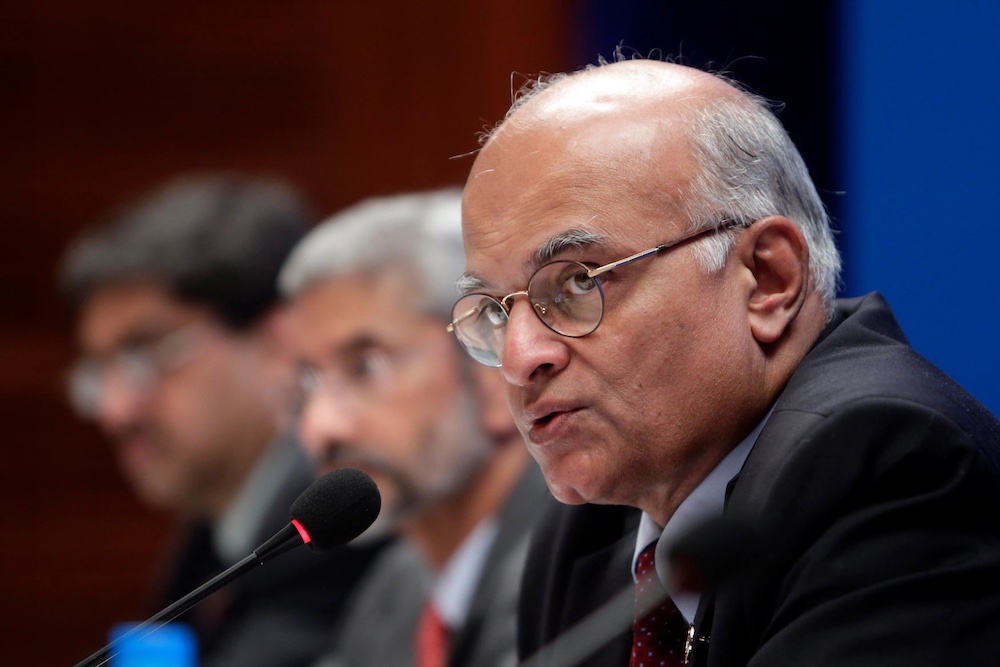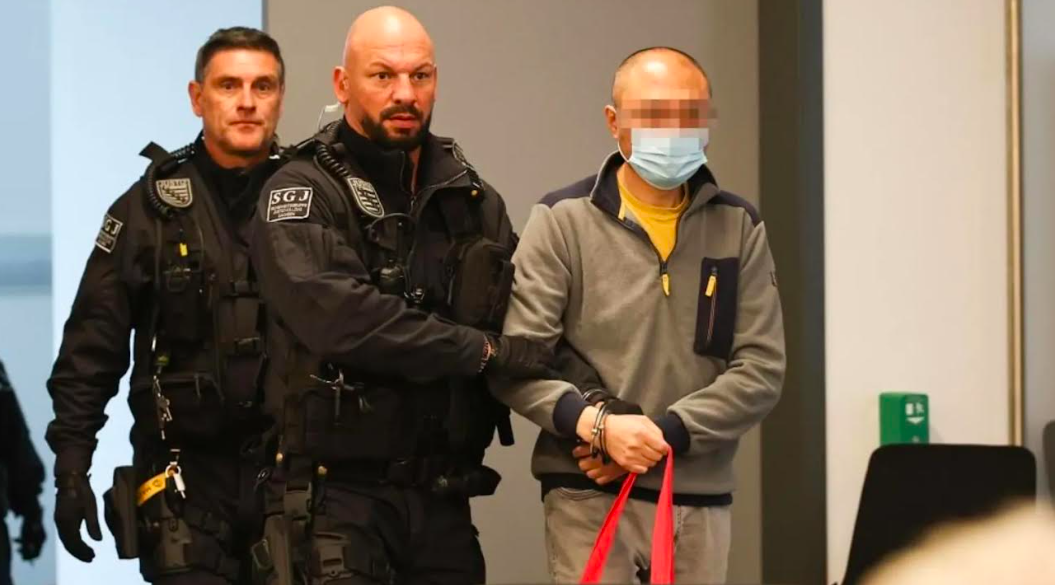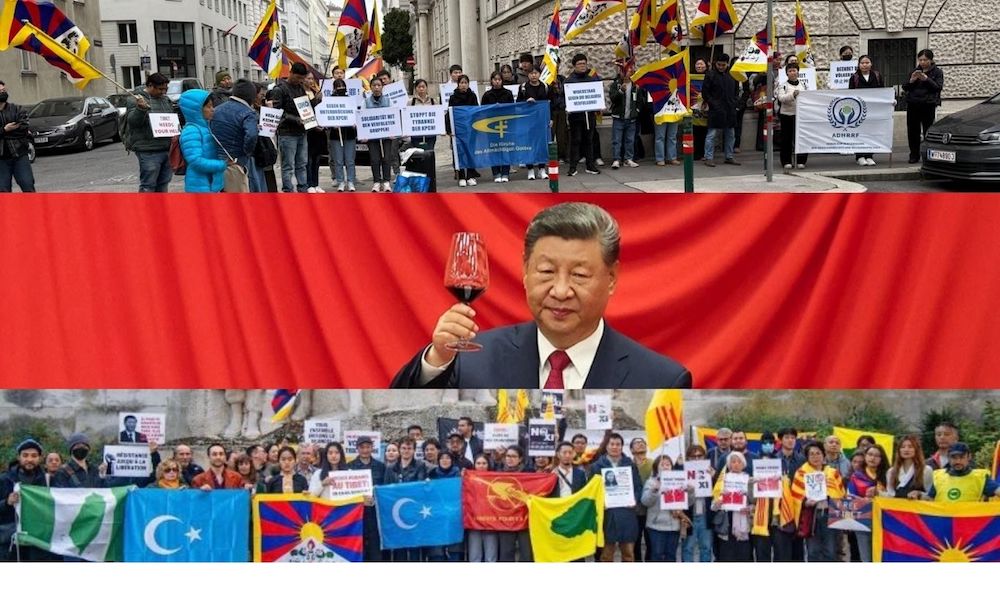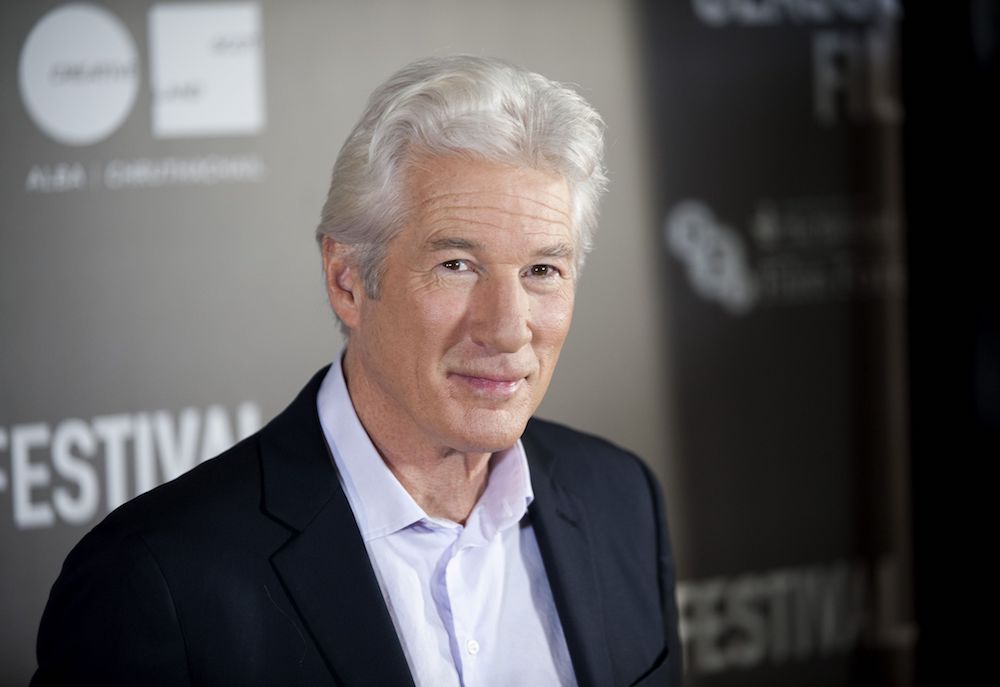By Tsering Dhundup
DHARAMSHALA, July 18: Former National Security Advisor Shivshankar Menon has stated that India should recognise and engage with the Dalai Lama chosen by the Tibetan people, not one appointed by Beijing, during an interview with The Wire. Speaking to veteran journalist Karan Thapar, the former Foreign Secretary and Ambassador to China said, “We should keep dealing with whoever the Tibetan people choose, as we have done so far.”
Reinforcing his position, Menon emphasised that India’s recognition of the next Dalai Lama should be rooted in the will of the Tibetan community, regardless of where the selection takes place. “He’s (Dalai Lama) laid down a procedure, but it’s not necessarily in Dharamshala or wherever. Wherever the Tibetan people choose to do so, we should recognise their choice,” Menon said, referring to His Holiness the 14th Dalai Lama’s guidance on the succession process.
The interview covered wide-ranging issues around the geopolitics of the Nobel Peace Laureate succession. Menon called the topic “a sensitive issue” and acknowledged that it will not be easy to navigate. He criticised China’s claim to appoint the next Dalai Lama, pointing out the contradiction of an atheist Marxist-Leninist regime seeking control over a religious process. “It contradicts their basic belief system,” he noted, referencing China’s view of religion as “the opium of the people.”
Menon also addressed potential fallout in India-China relations if New Delhi were to recognise a Dalai Lama appointed by the Tibetan exile leadership in Dharamshala rather than Beijing’s chosen candidate. “China could make it a big issue, or it may choose not to do so. At the moment, we don’t know,” he said, indicating the uncertainty of China’s possible reaction.
His remarks come amid heightened tensions between India and China, particularly surrounding Tibet. Ahead of Indian External Affairs Minister S. Jaishankar’s visit to China for a regional summit, the Chinese embassy in New Delhi described the Tibet issue as a “thorn” in bilateral ties. Chinese spokesperson Yu Jing warned Indian academics and strategic experts against making “improper remarks” on the Dalai Lama’s reincarnation, asserting that the matter is an “internal affair of China.”
Despite Beijing’s pressure, India has witnessed visible support for the Tibetan spiritual leader. Indian Parliamentary and Minority Affairs Minister, Kiren Rijiju, attending the Dalai Lama’s 90th birthday celebrations along with other senior Indian politicians stated that as a Buddhist, he believes only the Dalai Lama and his institution can decide his reincarnation. The Ministry of External Affairs, however, maintained that India takes no official position on religious matters.
The Dalai Lama, who has lived in exile in India since fleeing Chinese-occupied Tibet in 1959, has said repeatedly that his successor will be born in a free country, not under Chinese control. His spiritual authority and political legacy continue to be a point of contention between China and Tibetans around the world.
The interview also touched upon U.S.-China relations, particularly in light of the 2020 Tibet Policy and Support Act passed during Donald Trump’s first term. The legislation imposes sanctions on Chinese officials who interfere in the Dalai Lama’s succession. Menon acknowledged that if the U.S. enforces this policy again under a second Trump presidency, it could further complicate international dynamics around the succession issue.
Concluding his remarks, Menon highlighted the longstanding emotional and political ties between India and the Tibetan people. “There’s always been a very special and strong bond between India and the Tibetans, the Tibetan people, and with the Dalai Lamas of the past as well, right through,” he said.











One Response
India has been pussyfooting when it comes to the Tibet issue. Realising the disastrous Tibet policy of the Nehru era which ignored the most important role TIBET PLAYED AS A BUFFER STATE BETWEEN INDIA AND CHINA and endorsed totally baseless and fraudulent Chinese claims over Tibet!!! Owing to India’s compliant policy of capitulation, it is now saddled with a neighbour that is fascist, reckless, irresponsible and down right untrustworthy!!! It is unimaginable that Indian leaders were ignorant of geopolitical ramifications of China’s illegal occupation of Tibet! it is time therefore to realise the unforgivable blunder it made and make up for the loss. The present situation is going to decide the fate of Tibet in the next hundred years. If the next Dalai Lama gains the stature that the present 14th Dalai Lama gained, there is hope, Tibet will regain its independence. The Chinese communist regime is unlikely to last another 50 years. The economic malaise will only spiral with a down ward spiral which will cause social instability which seems to be happening already. Joblessness is so severe for young people that the regime is no more issuing statistics of the joblessness in communist China. The second is the rampant corruption that is incurable despite dictator Xi’s attempt to clean up the rot. Third, a war with America is emerging as a real possibility over Taiwan. In such a scenario, the economy of communist China will likely suffer a catastrophic slump owing to sanctions by western countries and the exhaustive cost of war. Besides, most of Chinese cities on the costal areas and even Beijing will be turned into rubble. The Dalai Lama’s non-violent campaign for the freedom of Tibet is likely to get much needed oxygen in the aftermath of Chinese aggression on Taiwan, especially if it loses the war which is more likely than not. The west will not settle for anything except the total elimination of the CCP and democratisation of China! We saw this in Afghanistan and Iraq even though Afghanistan went the wrong way. India knows that the greatest draw back after independence in 1947 has been the humiliation of the 1962 aggression by communist China. This happened soon after Tibet was occupied. It would have never happened if Tibet remained independent as it was before. Today, there is a chance to rectify this aberration. India is on the threshold of becoming a world power in its own right. While communist China attempts to contain India by any means, India should make sure that time has come for India to come out into the world to carve its own sphere of influence in order to protect and enhance its national security. Tibet is the buffer that has served the British well while they were ruling India for more than two centuries. It jealously guarded Tibet from the imperialist ambitions of the Manchus and later the Republican Chinese as well as from Czarist Russia. Britain ruled out any foreign interference in the affairs of Tibet while Tibetans were discouraged from dealings with the Chinese or Russians. Tibet was thus isolated not out of an its own wish but in deference to British interests to keep India safe! However, Tibet remained independent without losing its sovereignty to any neighbouring country. This is evidenced by TIBET’S REFUSAL TO ALLOW ANY MILITARY HARDWARE TO BE TRANSPORTED TO CHINA THROUGH TIBET BY THE AMERICANS. TIBET STEADFASTLY REFUSED TO THE REQUEST AMERICA MADE UPON TIBET. TIBET TOLD THE AMERICANS THAT IT REMAINED NEUTRAL TO THE SINO-JAPANESE WAR AND WOULD NOT ALLOW AMERICAN ARMS TO BE SUPPLIED TO CHINA THROUGH TIBET. The Americans had to transport military wares by air to Kunming. One such plane had to crash land in Tibet! The Dalai Lamas have huge influence in most of Buddhist Asia. Owing to communist China’s suppression of the Dalai Lama, he couldn’t travel much in Asia. If he was, the whole Asian continent’s Buddhist nations would have invited him. During the Dalai Lama’s 90th birthday, representatives from most Buddhist countries came to Dharamsala to Greet Him. These include: Bhutan, Burma, Cambodia, Japan, Mongolia, Taiwan, Thailand, Sri Lanka and Laos. It shows the reach of the Dalai Lama’s influence even though he was unable to travel to most of them. India therefore must not treat this with a cold shoulder since, Buddhist Himalayas loyalty and future stability in the region lies in having the Dalai Lama firmly ensconced in India! When the Karmapa Rinpoche arrived in India, India said the same thing and alienated him. Obviously, he would have expected India to acknowledge him as the Karmapa since the Dalai Lama had given him his approval. Unfortunately, Indian authorities didn’t want to get involved in the tug of war between Shamar’s candidate and Karmapa Ugyen Trinley Dorje. So, they sat on the fence. The result was Karma gradually went on his way by getting a Commonwealth of Dominica passport and left India for good! The Dalai Lama is much more important than Karmapa since he was the political ruler of independent Tibet. India accorded full sovereign leader’s status when he visited India in 1956 during the 2500th Buddha Jayanti celebrations. By virtue of being the Temporal and Spiritual Leader of a country that has inherited India’s ancient religious and cultural heritage, India has a responsibility for the wellbeing of the person and also acknowledge the 600 year unbroken lineage of the Dalai Lama’s recognised by the same institution known as GANDHEN PHODRANG INSTITUTED BY THE GREAT 5th DALAI LAMA NGAWANG LOBSANG GYATSO. I APPLAUD FORMER FOREIGN SECRETARY SHIVSHANKAR’S STATEMENT TO RECOGNISE THE DALAI LAMA CHOSEN BY THE TIBETAN PEOPLE WHO ARE THE CUSTODIANS OF THE DALAI LAMA INSTITUTION!